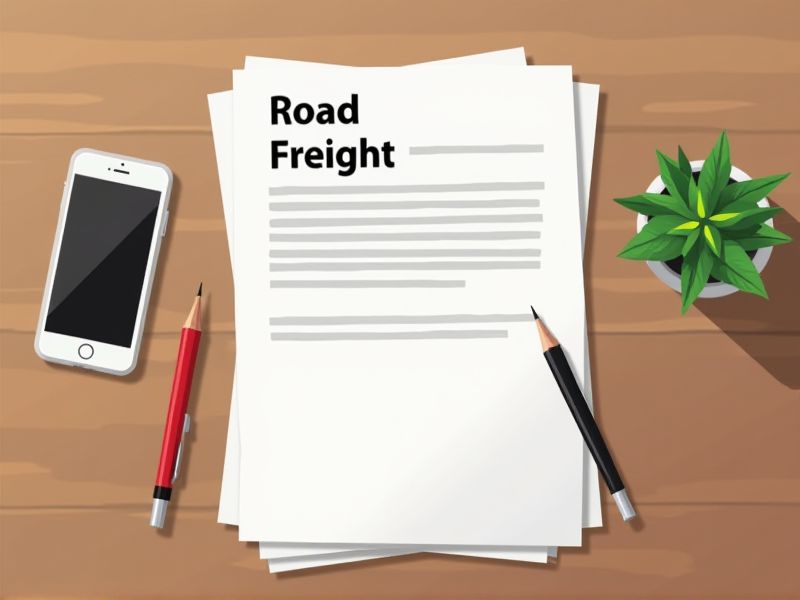
Road freight drivers operate heavy vehicles that require specialized skills and adherence to safety protocols. Certification ensures the driver is equipped to handle the complexity of operating large trucks and managing challenging road conditions. Legal requirements mandate specific certifications to enhance road safety and ensure compliance with transportation regulations. Below are important certifications needed for road freight drivers.
Commercial Driver's License (CDL)
The requirement for a Commercial Driver's License (CDL) ensures that drivers have the necessary skills and knowledge to safely operate large vehicles, which directly impacts road safety. Regulatory compliance mandates CDL to standardize qualifications across states, reducing the risk of accidents caused by unqualified drivers. The CDL helps to establish accountability, as drivers with this certification are recognized to have met specific federal requirements for operating commercial motor vehicles. Obtaining a CDL can lead to better job opportunities and earnings for drivers, as employers prefer candidates who meet legal standards and demonstrate professional competency.
HazMat Endorsement
HazMat Endorsement is required for road freight drivers to ensure they have specialized knowledge to safely transport hazardous materials. This endorsement helps reduce the risk of accidents and incidents involving toxic or flammable substances. Regulatory bodies mandate the endorsement to comply with safety and environmental protection standards. The credential enhances driver qualifications, increasing job opportunities and potential earnings.
Tanker Endorsement
Tanker endorsement is essential for road freight drivers because it certifies their ability to safely transport liquid and gaseous materials, which require specialized knowledge and skills. Obtaining this endorsement ensures drivers understand the unique handling characteristics of tank vehicles, reducing the risk of spills or accidents. Regulatory bodies mandate this endorsement to comply with specific safety standards and legal requirements for hazardous material transportation. With a tanker endorsement, drivers increase their job opportunities and potential earnings by being eligible for a wider range of freight assignments.
Doubles/Triples Endorsement
Obtaining a Doubles/Triples Endorsement enables road freight drivers to legally operate longer combination vehicles, enhancing their cargo capacity. This increased capacity allows companies to transport more goods per trip, resulting in improved efficiency and reduced transportation costs. The endorsement ensures that drivers possess the necessary skills to handle longer and more complex vehicles, thereby minimizing the risk of accidents and enhancing road safety. In regions with higher freight demand, having this endorsement provides drivers with more job opportunities and competitive advantages in the logistics industry.
Driver CPC (Certificate of Professional Competence)
Regulations mandate the Driver CPC to improve road safety by ensuring drivers maintain high professional standards. Enhanced skillsets through periodic training reduce accident risks, directly impacting public safety. The requirement aims to keep drivers updated on regulations and best practices, addressing evolving logistical challenges. Employers see improved operational efficiency and cost savings by reducing accidents and associated liabilities.
Transportation Worker Identification Credential (TWIC)
The Transportation Worker Identification Credential (TWIC) is necessary for road freight drivers to ensure secure access to maritime facilities and vessels, mitigating terrorism risks. Without TWIC, drivers are barred from entering secure areas, resulting in logistical delays and hindering supply chain efficiency. Proper credentialing enhances port and freight terminal safety, reducing unauthorized access. TWIC compliance ensures alignment with federal security mandates, maintaining a consistent standard across the transportation network.
Defensive Driving Certification
Defensive Driving Certification reduces the risk of accidents, as drivers are trained to anticipate and react appropriately to potential hazards. It improves fuel efficiency by teaching drivers how to maintain steady speeds and avoid sudden braking. Insurance companies often provide discounts to certified drivers, lowering operational costs for road freight businesses. Regulatory bodies may require this certification, ensuring compliance with legal standards and enhancing the company's reputation and trustworthiness.
First Aid/CPR Certification
Road freight drivers often face emergencies on the road where immediate CPR or first aid can save lives, necessitating certification. A certified driver can promptly assist injured passengers or pedestrians in accidents, minimizing potential fatalities. Certification also boosts the driver's confidence in managing unforeseen health crises during long hauls. Companies may prefer certified drivers, as they contribute to enhanced safety standards and reduce liability.
Road Safety Awareness Certification
Road safety awareness certification enhances a road freight driver's knowledge of traffic rules, reducing accidents. Increased awareness among drivers can lead to fewer vehicular damages and lower insurance costs for companies. Certification ensures drivers are up-to-date on the latest safety technologies and practices, increasing overall transport efficiency. Well-trained drivers contribute to a safer road environment, benefiting both the public and the freight industry.
Transportation Logistics Certification
Road freight drivers benefit from Transportation Logistics Certification because it provides them with essential knowledge about supply chain management, enhancing their operational efficiency. This certification ensures drivers understand legal and regulatory requirements, reducing the risk of non-compliance issues and potential fines. It equips them with skills in route optimization and load management, leading to cost savings and improved delivery times. Certification also increases job competitiveness, as companies often prefer or require certified professionals to maintain high standards in logistics operations.
Summary
When you obtain certifications as a Road Freight Driver, your employment opportunities broaden significantly due to increased trust from employers. Certified drivers are often eligible for higher pay, as their skills and knowledge align with industry standards. Companies tend to prioritize hiring certified professionals, leading to greater job security for you. These certifications can also boost your confidence and performance, which may improve customer satisfaction and company reputation.
